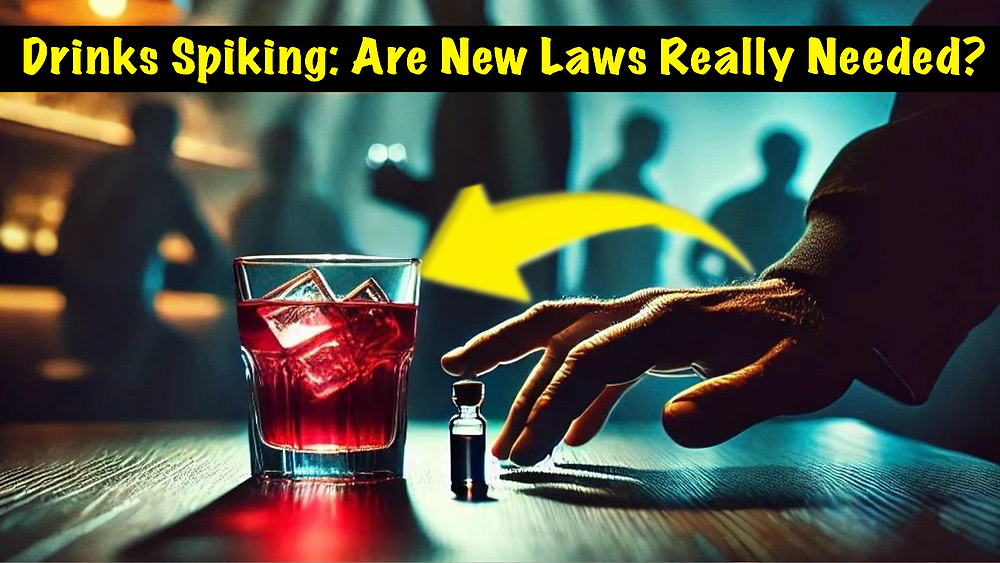Do We Really Need a New Law to Address Drink Spiking?
The announcement by the Labour government of upcoming legislation to make spiking a standalone offence has invited much criticism and ignited a debate: do we really need a new law when spiking is already illegal? Critics argue that existing laws, such as the Offences Against the Person Act 1861 and the Sexual Offences Act 2003, are sufficient to prosecute offenders, with a suspicion that new laws on this complex issue are more about optics than tackling the problems.
However, for all the difficulties around the prevention, detection and punishment of this crime, a closer look reveals that the current legal framework is inadequate in addressing the unique nature of spiking, making a dedicated law both a logical and necessary evolution.
Under existing legislation, for spiking to be dealt with using the full weight of the law, prosecutors must often prove intent to commit a sexual offence, beyond the act of spiking itself. It is not enough to prove beyond reasonable doubt tat a drug was slipped into the victim’s drink - it must be proven beyond reasonable doubt that the assailant intended to sexually abuse the victim.
This requirement to establish a motive has created a significant barrier to justice. Cases can fall apart in court if defendants claim the spiking was a prank or joke, leaving prosecutors unable to prove otherwise. The crime is not considered complete until intent can be demonstrated, making convictions rare under this legislation and frustrating for victims seeking justice.
Spiking with the intent of engaging with non-consensual sexual activity with an incapacitated victim can currently be prosecuted under other laws, but these do not reflect the specific nature of this offence. For example, offenders can be prosecuted for administering ‘poison’ in order to cause harm to a person. While this can be used for spiking with a sexual intent, it doesn’t acknowledge the unique nature of this act.
A standalone spiking offence would address this deficiency by focusing on the act itself—placing a substance in someone’s drink or body without their consent—without the need to prove ulterior motives. It would send a message that society takes these crimes seriously. This shift simplifies the legal process, removing ambiguities around intent and allowing the act of spiking to be treated as a serious crime in its own right.
The devastating impact of spiking is undeniable. Victims often describe sudden, overwhelming physical and mental impairment, leading to fear, confusion, and vulnerability. Times Radio political editor Kate McCann’s recent account of her own spiking experience highlights how widespread and insidious this crime is. Her story, of losing control after just one sip of a spiked drink, underscores the urgent need for legal reform that prioritises the act over intent.
Despite spiking being a clear violation of personal autonomy and safety, underreporting remains a significant issue. Police in England and Wales recorded over 6,700 spiking incidents between May 2022 and April 2023, but experts believe this is only the tip of the iceberg. Many victims do not come forward, often because they fear they won’t be believed or are unsure whether what happened to them constitutes a crime. A clearer, standalone offence would not only simplify prosecutions but also send a powerful message: spiking is a serious crime, and perpetrators will face significant consequences.
Moreover, spiking affects a broad spectrum of people. While women are disproportionately targeted, recent data shows that around a quarter of victims are men, particularly within the LGBTQ+ community. This underscores the need for a law that reflects the seriousness of the crime regardless of the victim’s gender or the perpetrator’s intent.
The practical enforcement of a new spiking law will undoubtedly present challenges. Gathering evidence in social settings like bars and nightclubs, where drugs often dissipate quickly from a victim’s system, will require significant improvements in policing strategies and public awareness, and even then, will likely prove highly challenging. However, this should not deter lawmakers from addressing the legal shortcomings that currently hinder justice.
In conclusion, while spiking is already illegal under various laws, the creation of a dedicated offence would clarify and strengthen the legal framework, ensuring that the act of spiking is treated with the gravity it deserves. Simplifying prosecutions by removing the burden of proving intent is not just a legal necessity—it’s a logical step towards protecting victims and deterring perpetrators.
A new law won’t eliminate spiking overnight, but it will provide a clearer, more effective path to justice, making our legal system better equipped to handle this evolving and deeply personal crime.
This legal reform isn’t about creating new rules for the sake of it—it’s about ensuring justice can be served in cases where the current system falls short.
ACCESS TO THE LAW: Understanding the Legal Framework for Spiking Offences
As part of our ongoing series to improve citizens’ access to and understanding of UK criminal law, we clarify the relevant legislation surrounding spiking and the proposed standalone offence.
Currently, spiking can be prosecuted under laws like the Offences Against the Person Act 1861, which covers the unlawful administration of a substance to cause harm. However, these laws require proving the offender’s intent, such as sexual assault, which can be a significant barrier to prosecution.
The Sexual Offences Act 2003 also applies, but proving sexual intent in spiking cases is often challenging. The proposed standalone spiking offence aims to simplify the process by focusing solely on the act of spiking—placing a substance into someone’s drink or body without consent—without needing to prove ulterior motives.
This new law would create a distinct offence for spiking, making it easier to prosecute offenders and providing clearer pathways to justice for victims. It seeks to strengthen legal protections by treating spiking as a serious crime and simplifying the legal process.
Well, that’s all for now. But until our next article, please stay tuned, stay informed, but most of all stay safe, and I’ll see you then.






